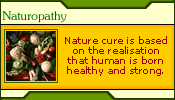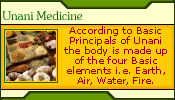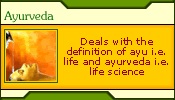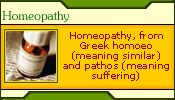| It is not possible to get away with the
process of aging and getting old but letting it not come very early
is possible with ayurveda and its medicinal herbs. According to ayurveda
healthy skin is the result of overall health condition of individuals
and prescribes numerous skin care treatments that need to be pursued
at every stage of life.
It is necessary to know about one's skin, whether it is oily, normal
or dry and subsequently about its needs and necessities. Medically
skin is a sensory organ that responds to reflexes and is a protective
system that shields the entire living body. As ayurveda believes
that all living beings have the panchamahabhoota as it is components,
same is for skin. It is formed of the Pancha Mahabhootas and is
the seat of sparshan indriya (a tactile sensory organ). Apart from
perceiving sensations such as cold, warm, heavy, light, rough, smooth,
etc. skin is also an excretory agent for Sweda (sweat). Skin is
also the dwelling of Bhrajaka pitta and regulates the temperature
of the living body and absorbs all local medicinal applications.
The complexion and luster of our skin is also conferred to the skin.
According to the sage Sushrut: "As the heating of milk forms
a layer of cream on the milk surface, in a similar manner in the
embryonic stage, dhatus (seven basic elements described in Ayurveda
which compose the human body) form the different layers of the skin
on our body."
According to Ayurveda skin is made up of seven layers and every
successive layer is thicker than the previous one and can be affected
by various disorders.
Following are the various layers of the skin:
- Avabhhasini
Being the thinnest skin of the skin that provides five different
chhayas (shades) and kanti (glow) to the skin. As the skin layer
has the capacity to retain water Charaka has described this layer
as udakadhara. On being bruised, lasika, a watery substance flows
out of it but if the skin is ehalthythis layer holds on to lasika
and does not allow it to flow out immediately.
The two disorders that effect this layer are:
- Lohita
The two disorders that effect this layer are called
- Shweta
The disorders that are found in this layer of skin are:
- Charmadala
- Ajagalli
- Mashaka
- Tamra
The disorders effecting this skin layer are:
- Vedini
The disorder that effects the skin's this particular layer are:
- Rohini
The disorders that disease this layer of skin are:
- Granthi
- Apachi
- Arbuda
- Galaganda
- Mamsadhara
The disorders found in this skin layer are called:
|


















